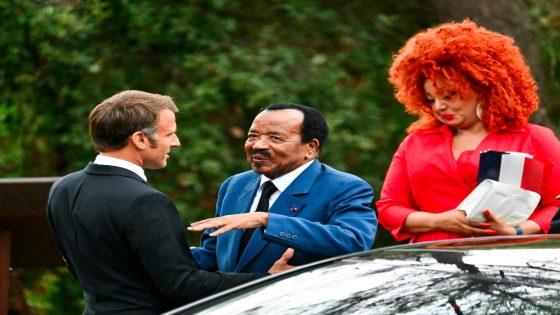Authorities dismiss rumours of ill health as ‘pure fantasy’, set up ‘monitoring cells’ to track online debate.
Cameroon has banned the media from discussing the health of 91-year-old President Paul Biya, who has not been seen in public since early September.
Interior Minister Paul Atanga Nji this week imposed the ban, stating in a letter dated October 9 that “debate in the media” on the president’s health was “strictly prohibited”, and ordering that “monitoring cells” charged with tracking online content be set up.
The letter, which was addressed to regional governors and bore a red stamp reading “highly urgent”, said that discussions on the health of the nonagenarian president were “a matter of national security”, warning that anyone violating the order would “face the full force of the law”.
Biya was last seen in public at the China-Africa summit in Beijing a month ago. Since then, he has not attended gatherings at which he had been expected, including the United Nations General Assembly in New York or a summit of French-speaking countries in Paris.
Government spokesperson Rene Sadi addressed the speculation over the president’s health on Tuesday, claiming that Biya had paid a private visit to Europe after Beijing.
“Rumours of all kinds have been circulating through the conventional media and social networks about the president’s condition,” he said in a statement.
“The government unequivocally states that these rumours are pure fantasy … and hereby issues a formal denial.”
Sadi insisted Biya was “in good health” and would be returning to Cameroon “in the coming days”.
The ban was criticised as an act of state censorship.
“The president is elected by Cameroonians and it’s just normal that they worry about his whereabouts,” said Hycenth Chia, a Yaounde-based journalist and talk show host on privately owned television Canal 2 International.
“We see liberal discussions on the health of [US President] Joe Biden and other world leaders, but here it is a taboo,” he told the Reuters news agency.
The Committee to Protect Journalists (CPJ) said it was gravely concerned.
“Trying to hide behind national security on such a major issue of national importance is outrageous,” said Angela Quintal, head of the CPJ’s Africa programme.
Cameroon’s media regulator, the National Communication Council, could not immediately be reached for comment.
With no clear succession plan, observers believe Biya’s death would bring more political turmoil to West and Central Africa, which has seen eight coups since 2020 and several other military attempts to overthrow governments.
Biya has been Cameroon’s president for more than 41 years. In Africa, his lengthy rule is second only to 82-year-old Teodoro Obiang Nguema Mbasogo, who has held power in Equatorial Guinea for 45 years.





